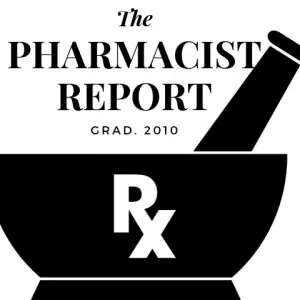Are you confused between nutritionist and pharmacist career fields? If yes, then this post is going to help you. Here we have compared both these job positions so that you can have a better idea about which one is ideal for you.
Before choosing between nutritionist and pharmacist, there are various factors you need to take into account. It’s not just about how much money you would be able to make after becoming a nutritionist or pharmacist. It’s more about which one interests you the most.

Nutritionist
Nutritionists are responsible for planning the nutritional needs of clients by assessing their health, sleep levels, health, food habits, etc., factors. As a nutritionist, your responsibility will also be to provide information to the clients and explain the effects of nutrients on overall health.
As a nutritionist, you may work in the hospital, work for the government, or even build your own client base. Depending on your interest, you can decide how you want to work.
Education requirements & qualifications
Before pursuing this career field, it is good to have a good idea about the education requirements and qualifications you need to meet. To become a nutritionist, first of all, you will require a bachelor’s degree in food, nutrition, food service management, or a related field.
After the completion of a bachelor’s degree, you need to get the certification. You will require a Registered Dietitian (RD) by Commission on Dietetic Registration. You need to get Accredited Dietetic Internship (DI) by the American Dietetic Association (ADA). You will require Food Handler’s permit or ServeSafe certification as per state requirements. Depending on the state, certification requirements may differ.
Duties and responsibilities
Here are the major duties and responsibilities of nutritionists:
- Offer dietetic educational services
- Assess patients’ nutritional needs
- Facilitate group sessions
- Oversee meal planning
- Print and process client food service reports
- Resolve client requests and complaints
- Providing general information on diet through approved materials and resources
Skills
To become a nutritionist, you need to have the following skills:
- Creating a safe, effective environment
- Bedside manner
- Teamwork and team management
- Promoting dietary health
- Health promotion and maintenance
- Interpersonal skills to instruct and persuade clients
- Time management and organizational skills
- Active listening to provide complete attention to clients when they are talking about their health issues
Salary
Salary is another crucial thing to know before choosing any career field. Your salary as a nutritionist will vary depending on where you work, experience, skills, etc.
According to U.s. Bureau of Labor Statistics, the median annual salary of nutritionists is $59,410. The top 10% make $83,070 a year, while the bottom 10% make $36,910 a year.

Pharmacist
Pharmacists dispense and supervise the dispensing of medications. They make sure dispensed medications are according to physicians’ prescriptions. The duty is not limited to dispensing the prescriptions. Many times, prescriptions can be unclear or potentially harmful for a patient. In this situation, pharmacists need to confirm the dosage and formulation.
As a pharmacist, one of the crucial things is ensuring the safety of patients. Pharmacists check each patients’ medication record every time he/she gets a new or refill prescription filled. In short, dispensing medication is the primary job of pharmacists. Apart from this, they are responsible for many other tasks.
Education requirements & qualifications
To become a pharmacist, first, you need to earn the PharmD (Doctor of Pharmacy) degree. You need to get this degree from a pharmacy program accredited by the Accreditation Council for Pharmacy Education (ACPE). It will take six years to earn this degree.
Apart from a Doctor of Pharmacy degree, another important thing you will require is licensure. You must pass NAPLEX (North American Pharmacist Licensure Examination) by the North Association of Boards of Pharmacy (NABP). Apart from this, most states also require candidates to pass MPJE (Multistate Pharmacy Jurisprudence Exam).
Duties and responsibilities
Here are the major duties and responsibilities of pharmacists:
- Preparing medications after reviewing and interpreting patients’ orders
- Dispensing medications by compounding, packaging, and labeling pharmaceuticals
- Develop hospital staff
- Comply with state and federal drug laws
- Manage staff
- Maintain a safe and clean work environment
Skills
These are the skills you need to have in order to become a pharmacist:
- Administering medications
- Analyzing information
- Verbal communication
- Attention to detail
- Focus on quality
- Managing processes
- Pharmacology
- Productivity
- FDA health regulations
Salary
On average, pharmacists make more money than nutritionists. Depending on the type of pharmacy, experience, location, experience, skills, etc., your salary will vary. The average salary of pharmacists in the United States ranges between $129,958 and $146,907.

Nutritionist Or Pharmacist
We didn’t want you to only take our word for it so we went out and gathered information from real current and past students of each profession. This information was curated from different websites, forums, and sub reddits. Nothing has been changed except any spelling or grammar where needed.
Real Opinions
1. Adam Yee “Nutritionist” – I will speak for food science.
It’s a stable job that requires less schooling than pharmacy. Everyone has to eat, and there is quite a need for more people in the food industry especially now. You take on more of a corporate role when you go into food science and deal more with corporate shenanigans and marketing mishaps.
Both professions are awesome, you have more variables for success/failure as a food scientist since you can go so many paths. Pharmacy will definitively pay more, but you will be making more sacrifices.
If you’re choosing a field based of of money, do pharmacy. It’s hard, but worth it.
If you care about helping people be healthier through medicine, do pharmacy
If you care about helping people be healthier through food, do food science
If you want to work right away after college, then go food science
Hope that helps
2. Saanya “Over analyze both” – I can only answer about pharmacy ,not food science. So you have to decide considering pros and cons of both the fields where your interest lies and what you feel is suitable for you.
Pharmacy is study of medicine right from manufacturing of medicines,types of medicine different dosage of medicines to be administered to the patient care to be taken ,its side effects, basically everything related to the patient and a lot more.
As far as the course is related ,your basic concepts of organic chemistry and anatomy physiology should be good .
Search and analyze thoroughly both the career aspects ,decide wisely..!!!!Hope it helps.
3. Stanley Freeman “Pharmacy” – If you want lifetime job security – go for Pharmacy or for any occupation that requires a license – eg. Nursing, CPA, Teaching, Occupational Therapy, Pharmacy, etc. If a 50 year old Chef loses her job – that’s a big problem. A 70 year old Pharmacist can find new employment within the U.S. See the book License To Earn (Second Edition) on Amazon.
4. Abdi Fima “Pharmacy” – PHARMACY is better than food science because pharmacy has wider scope of study . It deals with effects of substances on the bod(benefits and adverse effects) and prevention of harm from them. Food science in contrast deals with general aspect of the food, balanced diet, source. It doesn’t consider how body act on food nor how food acts on body.
Final Thoughts
Here we have talked about educational requirements, qualifications, skills, salary, duties, and responsibilities of nutritionists and pharmacists. If you are confused between these two career fields, this post will be helpful to you.
Although nutritionists and pharmacists both are into the healthcare field, duties, responsibilities, salary, skills, education qualifications, certification, etc. of both are totally different. The primary job of nutritionists is planning the nutritional needs of clients, while the primary job of pharmacists is dispensing medicines.


